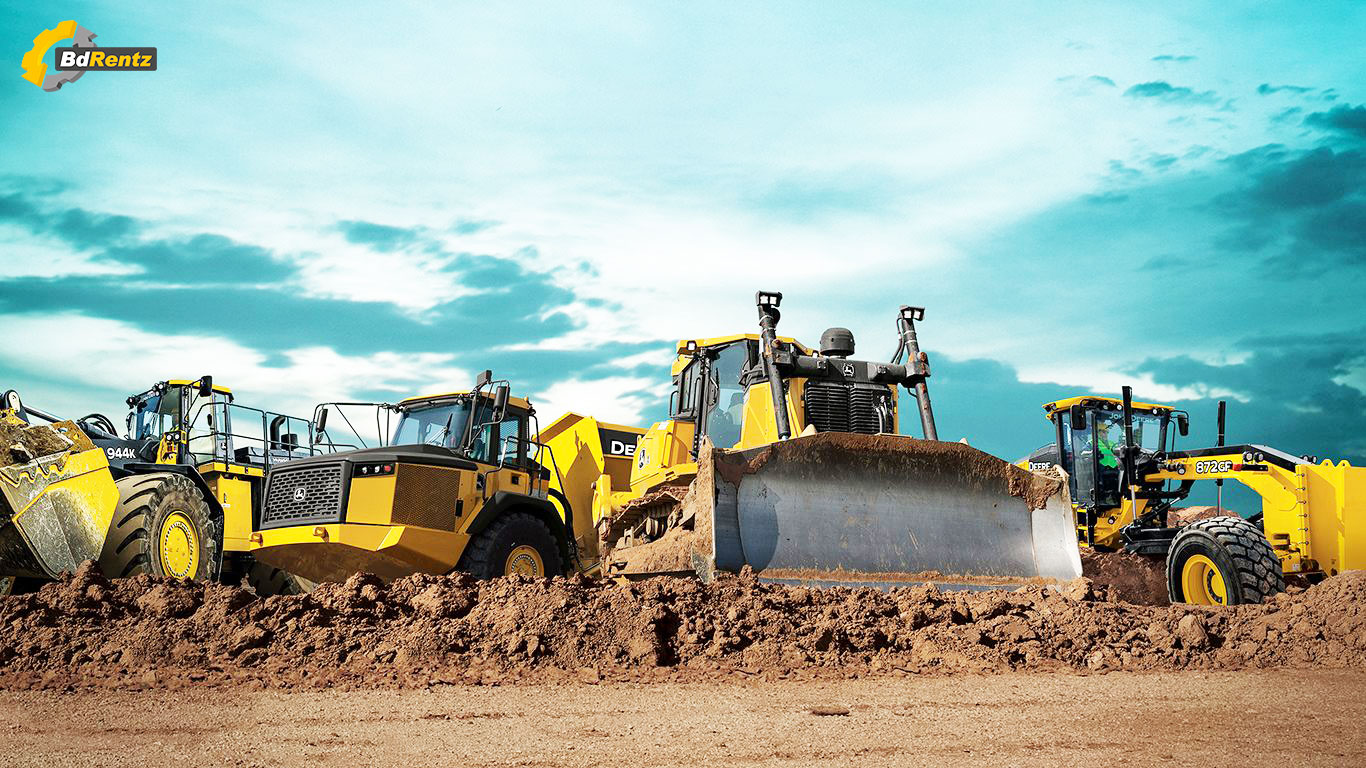Optimize Your Budget by Understanding the Prices Related To Building Equipment Services
Understanding the full range of expenses connected with construction equipment rentals is crucial for optimizing your spending plan. While the initial rental charge might seem uncomplicated, numerous extra costs-- such as transportation, fuel surcharges, and maintenance-- can promptly build up, impacting your monetary planning. Being conscious of numerous charges and the details of rental contracts can assist avoid unexpected monetary burdens. What strategies can be used to efficiently handle these expenses and make sure a much more reliable rental experience?
Overview of Rental Prices
When considering building and construction tools rentals, comprehending the connected prices is paramount for effective budgeting and job planning. Rental prices can vary dramatically based on numerous aspects, consisting of equipment kind, period of rental, and place. The initial rental charge usually reflects the devices's market need and its connected operational capabilities, influencing the total cost.
Along with the base rental price, ancillary prices might emerge, such as transportation fees, gas additional charges, and maintenance costs. It is vital to represent these additional costs to properly evaluate the overall expense of leasing equipment. Moreover, the rental duration can affect prices; longer services might get approved for affordable rates, while short-term services could sustain higher everyday fees.

Break Down of Rental Rates
A comprehensive understanding of rental rates is necessary for specialists and job managers aiming to optimize their spending plans. Rental rates for building and construction devices generally contain several components, consisting of base rates, time-based fees, and use costs.
Base rates are the core costs related to the rental of the tools, frequently established by the type and size of the equipment. These rates can differ substantially, affected by elements such as tools demand, accessibility, and local market fads. Time-based fees, which might be daily, weekly, or monthly, serve to fit different task timelines and rental durations.
In addition, rental prices may include use fees, which apply when devices is made use of past a specified limit, making sure that the rental business can make up damage. Seasonal demand changes can also influence rental prices, with peak building and construction seasons generally commanding greater prices.
Furthermore, recognizing the rental company's plans regarding upkeep and insurance policy can offer additional insight right into the overall cost structure. By evaluating these components, specialists can make informed choices, making certain the choice of rental equipment lines up with both task demands and spending plan constraints.
Added Charges to Consider
Recognizing the complexities of added fees is essential for contractors to manage their overall rental expenses efficiently. Past the common rental prices, numerous auxiliary costs can dramatically affect the total cost of equipment leasing. These charges frequently include distribution and pickup charges, which can differ based upon distance and logistics associated with transferring the devices useful link to and from the task website.
Furthermore, some rental companies may enforce gas additional charges if the equipment is returned with much less fuel than when leased. It is likewise necessary to understand possible cleansing fees, particularly for specific equipment that calls for thorough upkeep after usage.

Completely examining the rental arrangement and clearing up these additional fees in advance can assist service providers stay clear of unanticipated expenses and ensure that budgets remain undamaged throughout the project lifecycle.
Upkeep and Repair Work Expenditures
Regular repair and maintenance expenditures are commonly forgotten variables that can considerably influence the total cost of building and construction equipment leasings. When renting out equipment, it is essential to take into consideration not only the rental charges yet also the prospective prices connected with keeping the machinery in optimal operating problem.
Several rental companies include standard upkeep as part of the rental contract; nevertheless, extra unforeseen breakdowns or additional hints comprehensive repair services can bring about added expenses. It's necessary to assess the rental agreement carefully to understand what maintenance solutions are covered and what responsibilities fall on the renter.
Additionally, devices that is not well-kept can cause inadequacies on duty site, potentially triggering delays and boosting project costs. To mitigate these risks, it is advisable to perform normal examinations and keep open interaction with the rental provider regarding any kind of problems that develop during use.
Insurance and Liability Prices
Insurance policy and liability costs are critical parts that can dramatically affect the general expense of building and construction tools services (construction equipment rentals). These costs make sure that both the rental business and the client are shielded from potential financial losses occurring from accidents, damage, or burglary during the rental duration

Furthermore, customers should know any kind of deductibles or exclusions in the insurance coverage plan, as these can affect prospective out-of-pocket expenditures. Comprehending the conditions of any insurance protection is essential to prevent unanticipated costs. Ultimately, budgeting for insurance policy and responsibility expenditures can assist guarantee a smoother rental experience and secure against monetary threats linked with construction jobs.
Final Thought
In final thought, a detailed understanding of the heavy moving equipment rental costs associated with building and construction tools leasings is vital for efficient budget plan management. Ultimately, educated decision-making concerning equipment services contributes to the general success of construction undertakings.
Rental expenses can vary significantly based on numerous elements, including equipment kind, duration of service, and place (forklift rental). The rental period can influence prices; longer services may certify for reduced prices, while short-term services might incur higher daily costs
By conducting thorough research study and engaging with reputable rental firms, professionals can properly navigate the intricacies of rental prices, inevitably maximizing their economic resources.
Beyond the typical rental rates, various extra charges can considerably influence the total expense of devices rental. Rental business often offer responsibility insurance that covers injuries to third celebrations or damage to home, while tools damages insurance can cover the cost of repair services or substitute if the rented out tools is harmed.